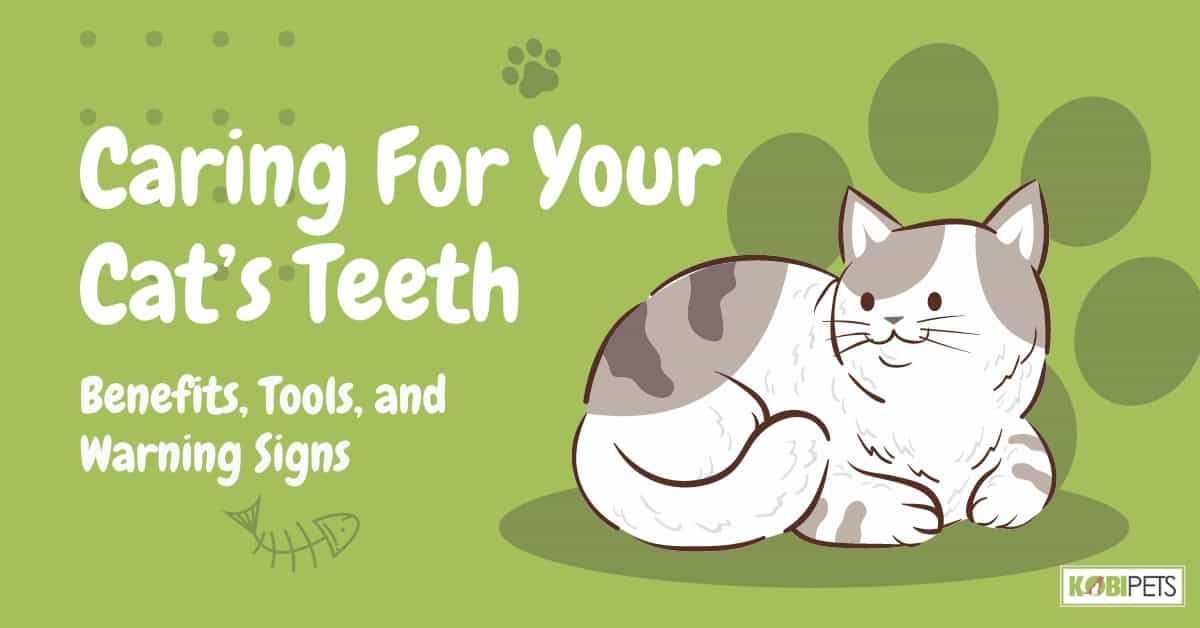
Cats are notorious for their sharp claws and quick reflexes, but did you know that dental care plays an important role in your pet’s overall health? Proper oral hygiene can help prevent the onset of disease, as well as ensure your cat has a healthy smile for life.
Having a healthy and happy cat starts with understanding the importance of dental care. While cats may be known for their occasional bouts of grumpiness, it is important to remember that poor dental health can have serious consequences on your feline’s overall well-being.
In this blog post, we will discuss everything you need to know about caring for your cat’s teeth, from brushing to diet and feeding habits. Keep reading to learn how you can give your furry friend a healthy smile for life!
Importance of Dental Care for Cats
Dental care for cats is an important part of any responsible pet owner’s routine. Many people do not realize that cats can suffer from dental conditions similar to those found in humans. Feline tooth disease, a serious condition, can have detrimental effects on your cat’s overall health if it goes untreated.
Common symptoms include bad breath, visible tartar build-up, and yellow or brown discoloration on the teeth. Regular brushing with a soft toothbrush and vet-approved toothpaste can help to reduce the risk of gum disease, which can be highly painful for cats and may lead to appetite loss or unwillingness to eat or drink water.
Additionally, many vet clinics offer professional examinations and cleanings that are tailored specifically for cats. Taking these precautions will ensure the long-term dental health of your feline friend.
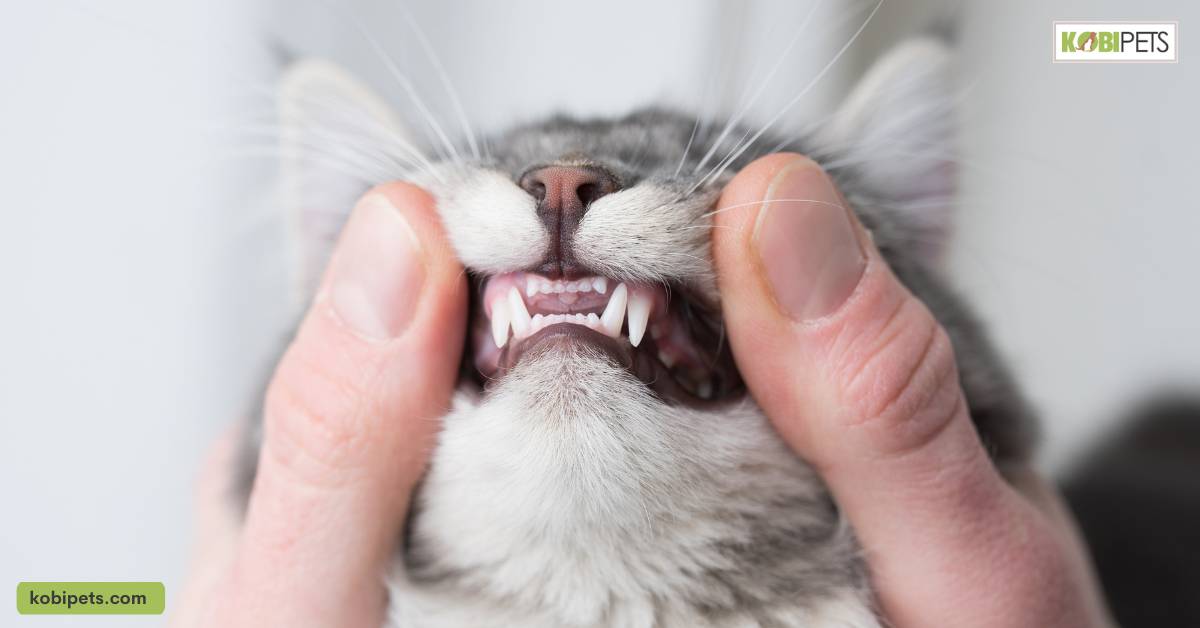
Benefits of Brushing Your Cat’s Teeth
Grooming your cat’s teeth should be part of your routine pet care. Brushing your cat’s teeth can help to prevent dental health diseases such as gingivitis and periodontal disease. It also helps to reduce bad breath and keep the mouth free from tartar, which could lead to health issues due to bacteria or parasites.
Not only that, but periodic tooth brushing can also remove food particles from between the teeth and along the gum line to help prevent future problems like infection or cavities. All in all, regular brushing of your cat’s teeth offers a multitude of benefits for your beloved feline friend.
- Prevents Tartar Build-Up: Brushing your cat’s teeth regularly will help to reduce the amount of plaque and tartar buildup that can accumulate on their teeth. This is important because it helps to prevent tooth decay, which can lead to gum disease or other dental problems.
- Fresher Breath: Brushing your cat’s teeth on a regular basis can help to reduce bad breath, which is often caused by bacteria buildup in their mouths.
- Healthy Teeth & Gums: Regular brushing helps keep your cat’s teeth and gums healthy by removing plaque and debris from their mouth. This will also help to reduce the risk of gum disease and other dental problems.
- Boosts Immunity: Keeping your cat’s teeth clean and healthy can help to boost their immune system, allowing them to better fight off infection and illness.
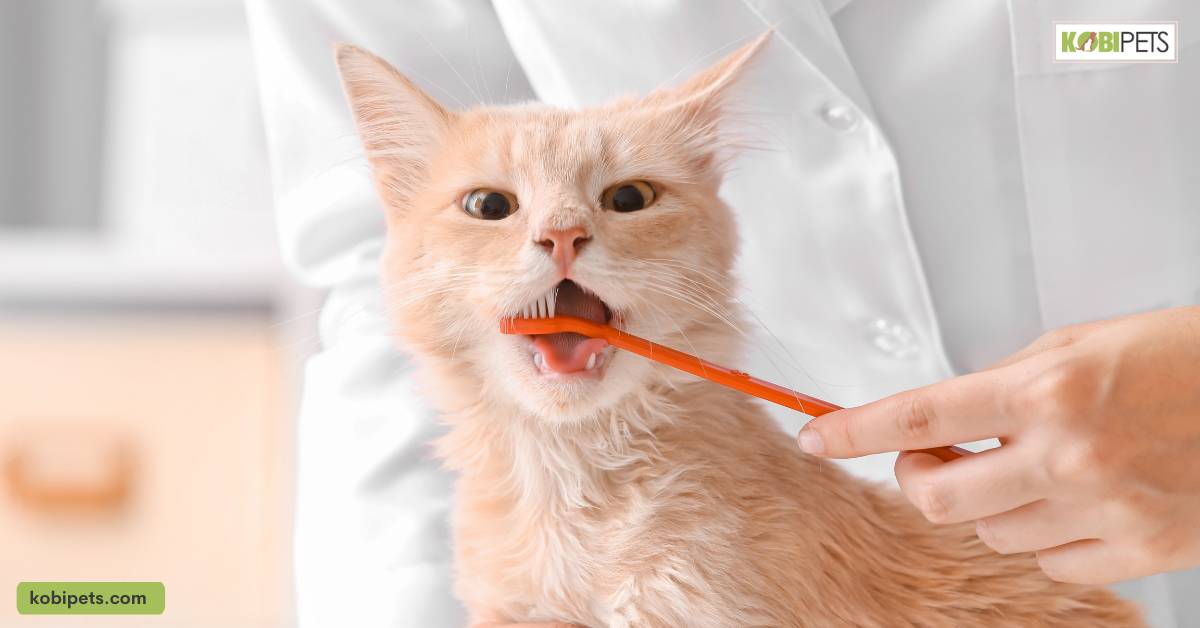
How to Introduce Your Cat to Tooth Brushing
Proper tooth brushing is essential for cats to maintain healthy dental hygiene. This task can seem daunting for first-time pet owners, but with consistency and patience, it can be taught easily.
- Get the Right Supplies: Before you start brushing your cat’s teeth, make sure to get the right supplies. You will need a special toothbrush and toothpaste designed for cats. You can find both of these at your local pet store or online.
- Get Your Cat Used to Be Touched in the Mouth: Before you start brushing your cat’s teeth, get them used to having their mouth handled. Start by gently touching the outside of their muzzle and then progress to rubbing along their gum line with your finger. This will help them become accustomed to being touched in the mouth.
- Start Slow: When you are ready to introduce the toothbrush, start slow. Dip the brush in water to moisten it and then apply a small amount of toothpaste. Gently rub around your cat’s teeth and gums for no longer than a minute, building up to two minutes as they become more comfortable with the process.
- Offer Praise & Rewards: Be sure to offer your cat lots of praise and rewards throughout the process. This will help them become more comfortable with brushing and even look forward to it in the future.
- Keep Sessions Short: It is important to keep brushing sessions short as cats can tire easily when being handled in this way. Start off with just a few minutes and gradually increase the length as your cat adjusts to the process.
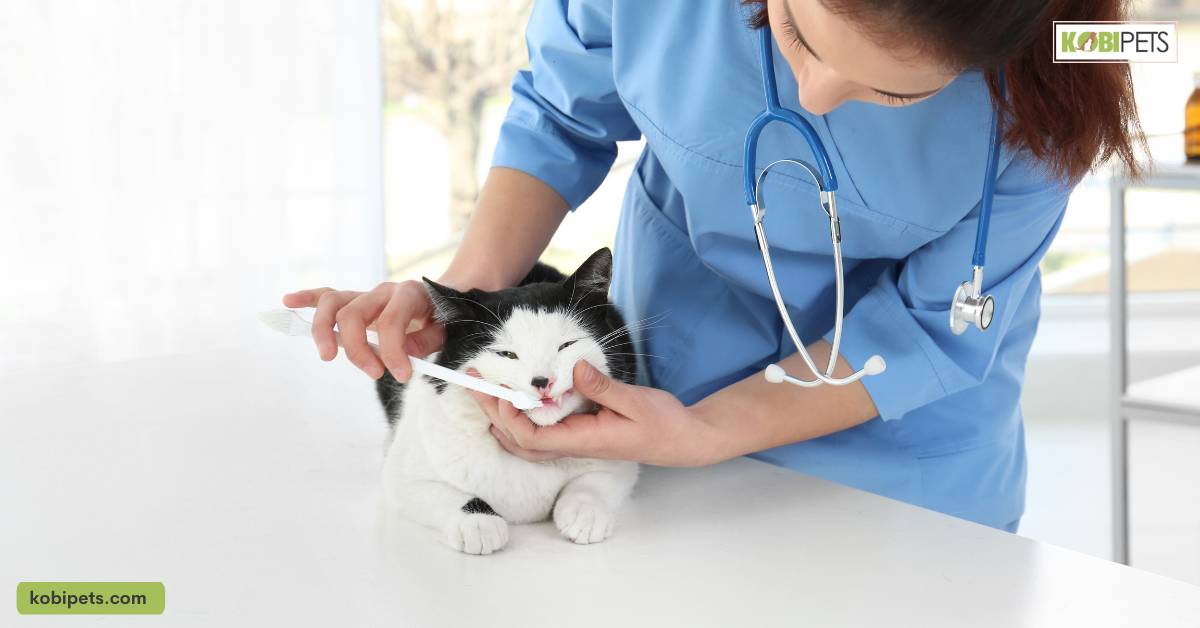
Tools and Products for Brushing Your Cat
Keeping up with your pet’s grooming needs is essential to ensuring their health and happiness. Taking care of a cat’s coat requires the right products and tools, such as brushes, combs, shampoos, conditioners, and more.
By brushing frequently, you can help prevent tangles and keep them feeling silky and smooth. With the right range of items for brushing your cat, you can enjoy healthy and sleek fur that will make other cats green with envy.
- Cat Toothbrush: A specialized toothbrush designed specifically for cats, with a smaller head and softer bristles to ensure comfort and safety during brushing.
- Cat Toothpaste: Vet-approved toothpaste that comes in flavors cats love (such as chicken or fish) is essential for removing plaque and keeping your cat’s teeth healthy.
- Dental Wipes: Dental wipes are an easy way to quickly and gently remove plaque and tartar buildup from your cat’s teeth without the need for brushing.
- Oral Rinse: An oral rinse specifically made for cats can help reduce bad breath and keep your cat’s mouth healthy between brushing.
- Chew Toys: Chew toys are a great way to help promote overall dental health in cats. This is because chewing on hard objects helps remove plaque from their teeth and even massages their gums, promoting blood flow for better oral health.
- Water Additive: A water additive is a great way to help reduce plaque and tartar buildup, as well as freshen your cat’s breath. Add it to their drinking water each day for maximum oral health benefits.
- Dental Treats: Look for treats specifically designed to reduce plaque and tartar buildup, while still tasting delicious to your cat.
- Vet Checkups: Regular checkups with your veterinarian are essential for cats to ensure they are in good oral health.
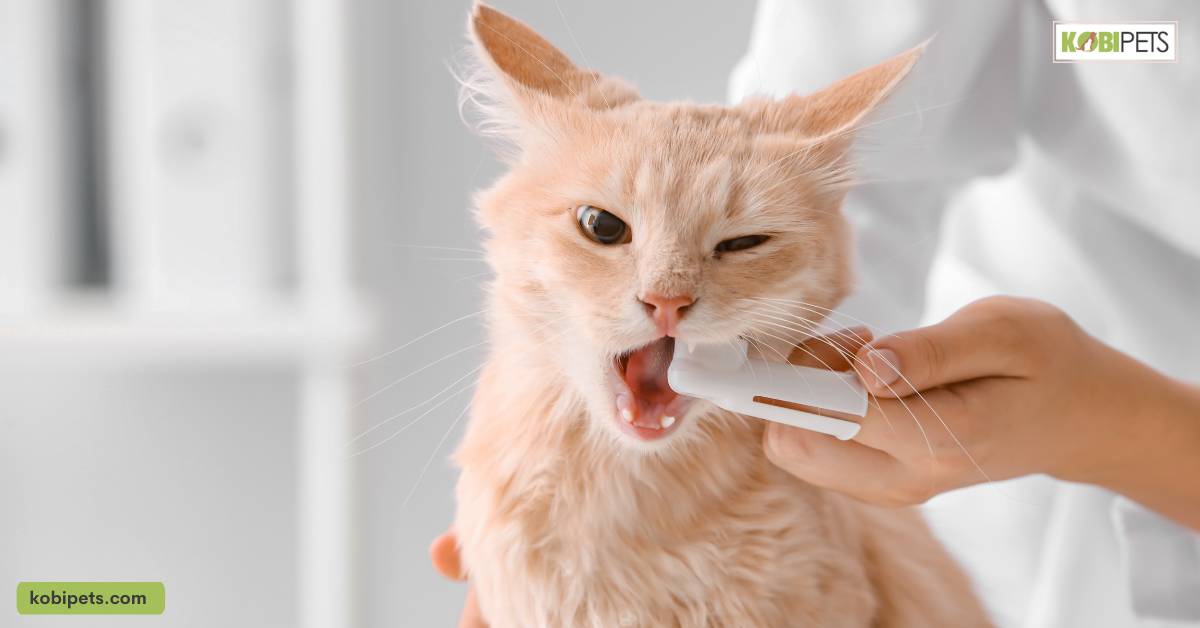
Diet and Feeding Habits for Caring Your Cat’s Teeth
Taking care of your cat’s dental health is an important part of being a responsible pet parent. Brushing your cat’s teeth regularly with a specialized toothbrush and toothpaste will help to keep them healthy and strong by removing plaque buildup that can lead to decay.
Additionally, feeding your cat dry kibble or canned food can help prevent tartar formation through the scraping of the teeth as it is eaten. You should also monitor their diet and provide crunchy treats or toys designed to clean their teeth as they play.
With regular brushing, proper kibble, and occasional treat-based cleaning, you can keep your furry friend happy and healthy for years to come.
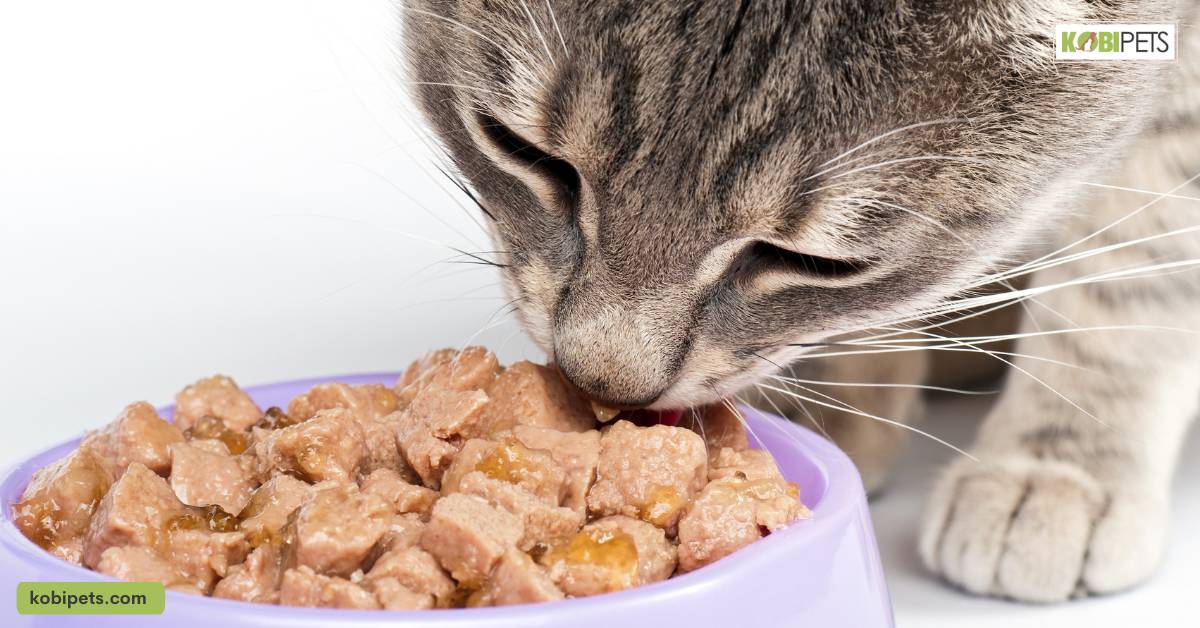
Regular Veterinary Check-Ups
Regularly scheduled veterinary check-ups are an important part of keeping your cat’s teeth healthy. During a normal exam, your veterinarian will examine your cat’s teeth for signs of dental disease, tartar buildup, and fractured or missing teeth.
Cavities can also be checked for and treated as needed. Your vet may recommend a thorough cleaning and polishing of the teeth to keep them healthy. This can involve scaling or scraping off tartar buildup and followed by tooth polishing which makes it harder for plaque to stick to the teeth and helps prevent gum disease.
Taking care of your cat’s dental health is critical to its overall well-being, so regular veterinary check-ups are key to maintaining a happy, healthy feline companion.
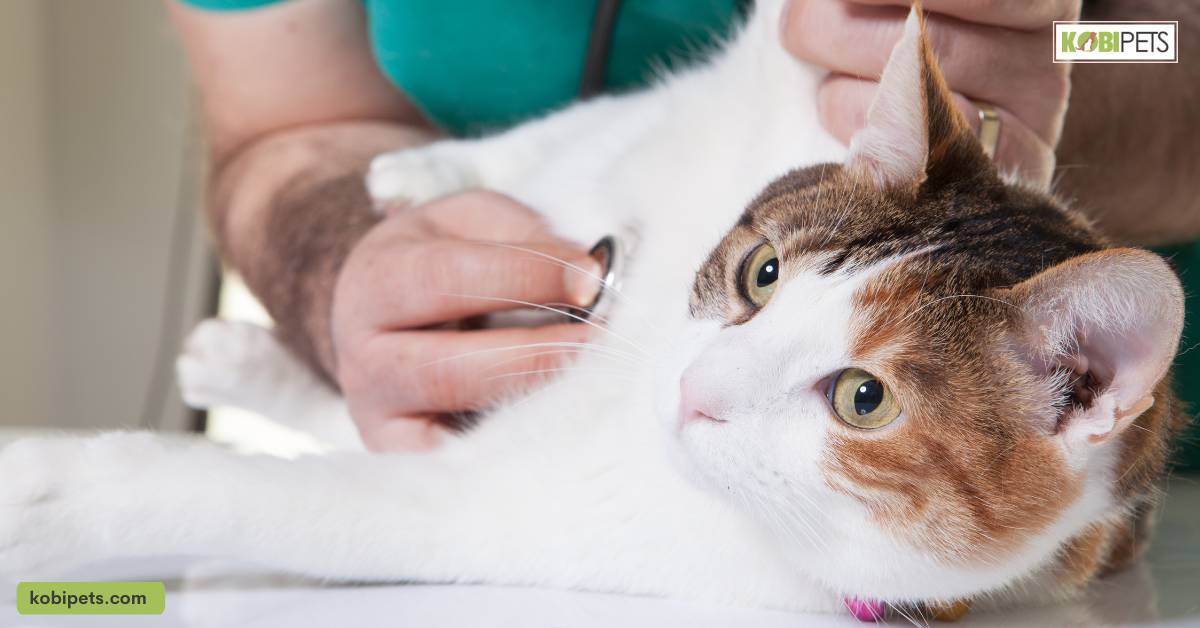
Preventive Measures and Treatments
Taking proper care of your cat’s teeth is important for its overall health. Regular tooth brushing, along with dental chews and specially formulated diets, is a great preventive measure for maintaining oral health.
Feeding wet food can also help reduce plaque build-up on the teeth and gums. If your cat has not been given regular checkups and proper preventive measures, cavities and periodontal disease are possible. In more severe cases, extractions or advanced dental treatments may be required to restore gum health.
To prevent these issues, contact your vet at least once a year to assess the condition of your cat’s teeth and gums and ensure they’re receiving the necessary preventive measures.
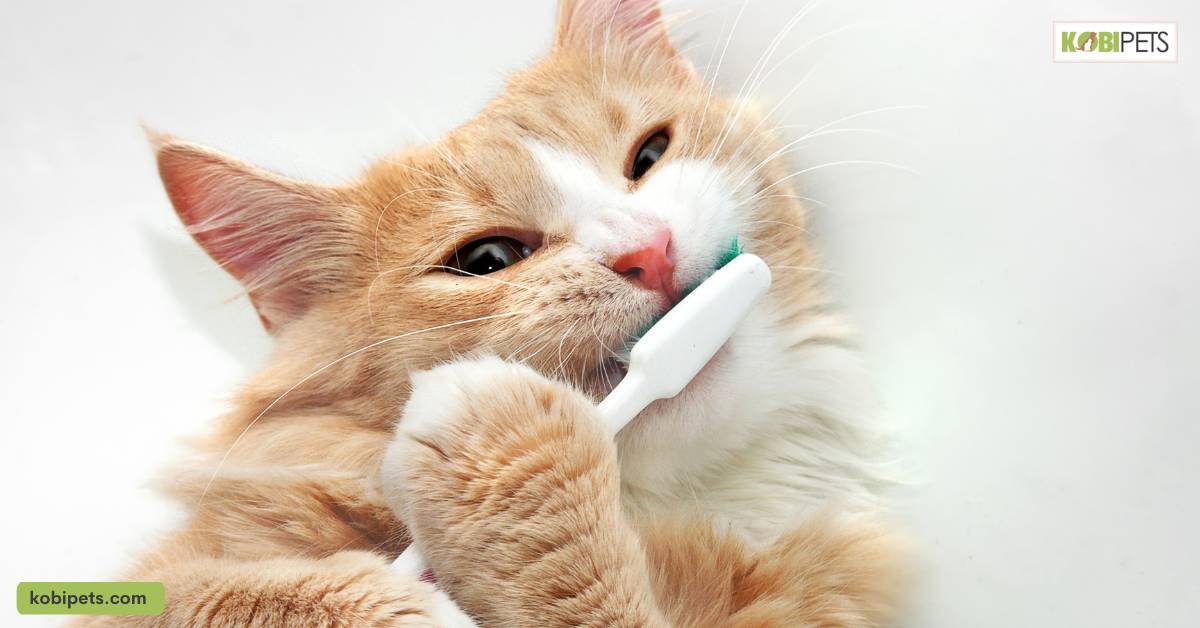
Warning Signs of Dental Problems
Caring for your cat’s teeth is an important part of its overall health. Regular brushing and veterinary visits help keep their teeth in good condition and minimize the risk of future problems.
However, there are certain warning signs of dental disease that should be taken seriously, such as bad breath, yellow or brown buildup on their teeth, broken or loose teeth, bleeding from the mouth, and difficulty eating.
- Bad breath: One of the most common signs of dental problems in cats is bad breath. If your cat’s breath is unusually foul, it may be a sign of underlying tooth decay or gum disease.
- Visible tartar and plaque buildup: Tartar and plaque buildup can occur on a cat’s teeth if not properly cared for. This can be visible as yellow and brown discoloration on the teeth.
- Bleeding or inflamed gums: If your cat is experiencing bleeding or red, swollen gums, this could be a sign of gum disease.
- Drooling and excessive salivation: Excessive drooling or salivation can be caused by dental pain. If your cat is drooling or salivating more than usual, it may be a sign of an underlying dental issue.
- Loss of appetite: When cats have gum disease or tooth decay, they often experience pain when eating which can lead to a decreased appetite.
- Pawing at the mouth: If your cat is pawing or rubbing their face, it may be trying to relieve pain or discomfort associated with dental problems.
If you notice any of these warning signs in your cat, it’s important to take them to the vet for a check-up as soon as possible. With proper preventive care and prompt treatment, you can help ensure a healthy smile for your feline friend for life.
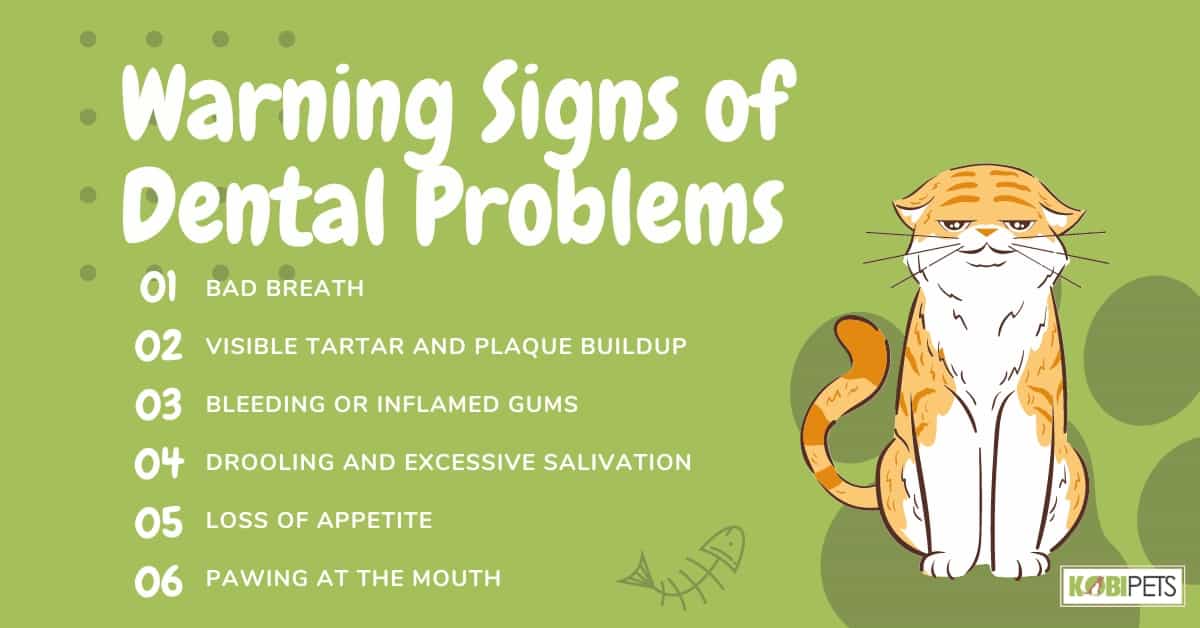
Warning Signs of Dental Problems
In Conclusion
Caring for your cat’s teeth is an important part of being a responsible pet parent. Regular brushing, proper diet, and regular veterinary visits are all key components of maintaining good dental health in cats. With the right tools, products, and preventive measures, you can keep your cat’s teeth and gums healthy throughout their life.






